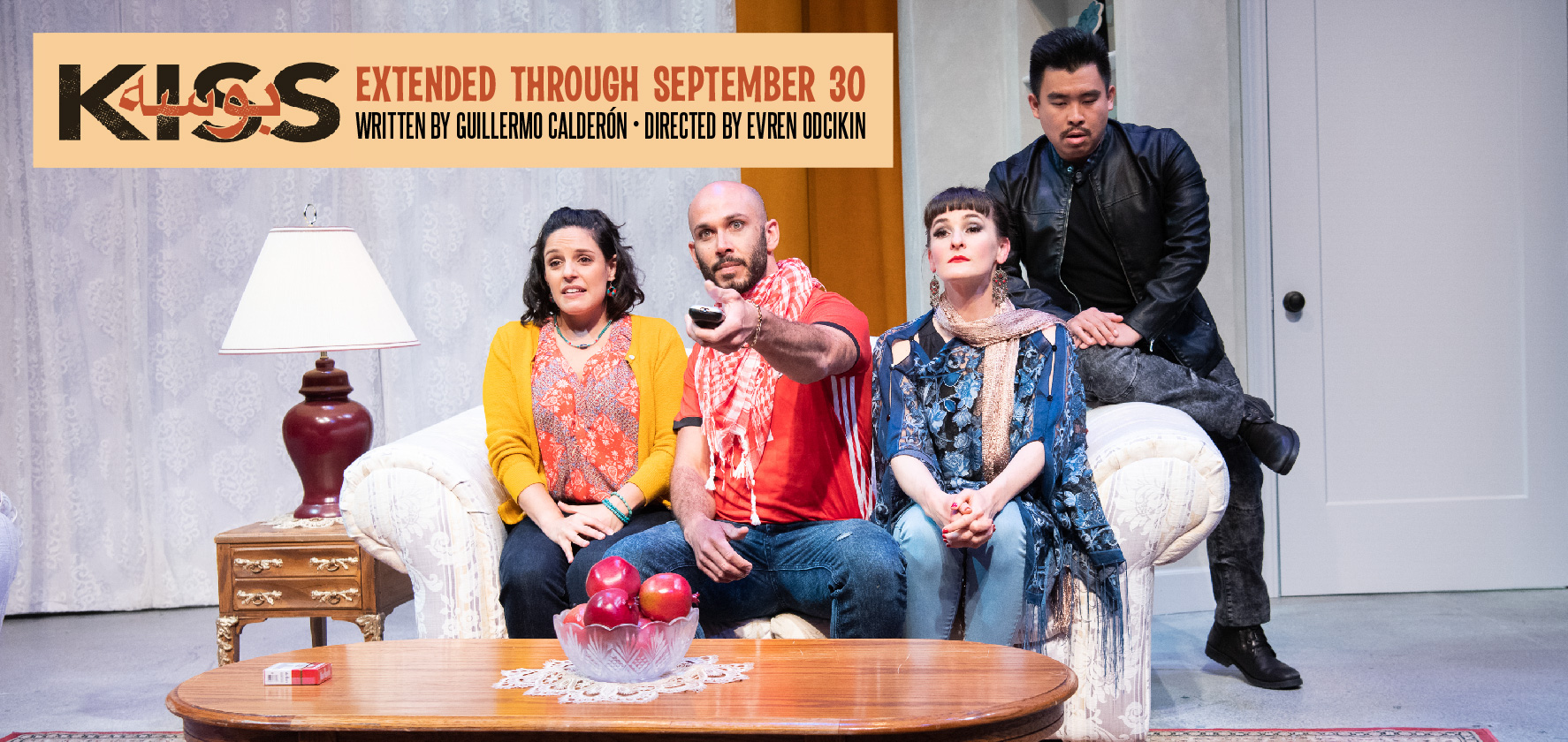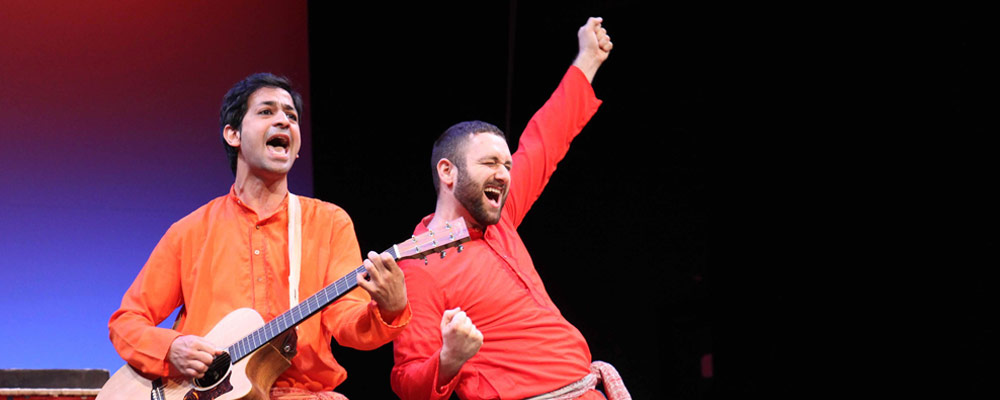The Creative Team
Shotgun Players is pleased to present Kiss in association with Golden Thread Productions, a local theatre company that focuses upon stories from and about the Middle East. Founded in 1996, Golden Thread Productions was the first theatre company in America devoted to the Middle East. They have produced over 100 new plays! Evren Odcikin, the director for Kiss, has served as the director of marketing and new plays for several years at Golden Thread. Torange Yeghiazarian, the executive artistic director, provided dramaturgical information for the cast including an overview of the conflict in Syria. We are proud to have Golden Thread as our partner!
“Theatre is going to push through.”
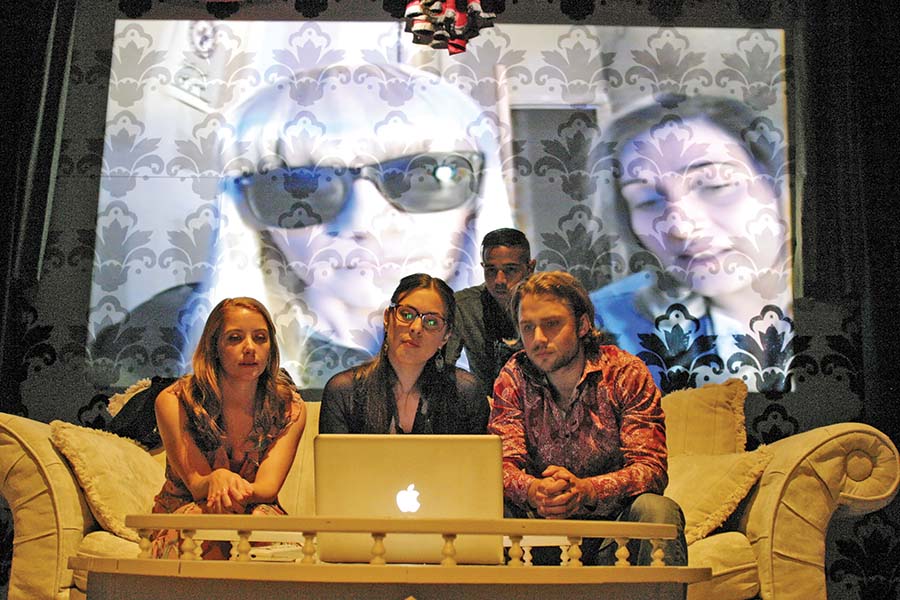
In an interview with American Theatre Magazine , Chilean playwright Guillermo Calderón describes his inspiration for his play:
“I have been writing about my country for a long, long time, and then when I was invited to develop this play for the Dusseldorfer Schauspielhaus, I decided to force myself to write something different, with the same human subject matter I have been writing before, but also trying to explore what was really urgent, which was the war in Syria. I was reading the newspapers, and every single day the news was getting worse and worse. The number of people killed and displaced was growing to an amount that was unimaginable. I thought, ‘Well, I would love to write about this. This is something that means a lot to me. It’s urgent.’ But there’s one problem with this, which is that I don’t know about the culture. I don’t speak the language. I’ve never been to Syria, or to the region for that matter. But I think that for me this is urgent, and I think that theatres should reach out and try to address this war and this tragedy in any way possible. So I decided to write a play about the war in Syria, but also about a misunderstanding about Syrian culture.”
“That’s when I thought, maybe this is a play about how theatre aims to reach out across cultures in a sort of an earnest and genuine way, but at the same time fails at doing it. It’s still worthwhile; in this play, misunderstanding is not a roadblock for theatre. Theatre is going to push through, even risking failure… Kiss is a very optimistic play in that, of course it deals with war and it deals with misunderstanding, but it also upholds the idea that theatre artists are not going to be stopped. Even when they feel like they have completely misunderstood Syrian culture and a play from a different country, they’re going to push through anyway, because they believe not only in their convictions—they also believe in the possibilities of theatre.”
Evren Odcikin: An Artist to Watch
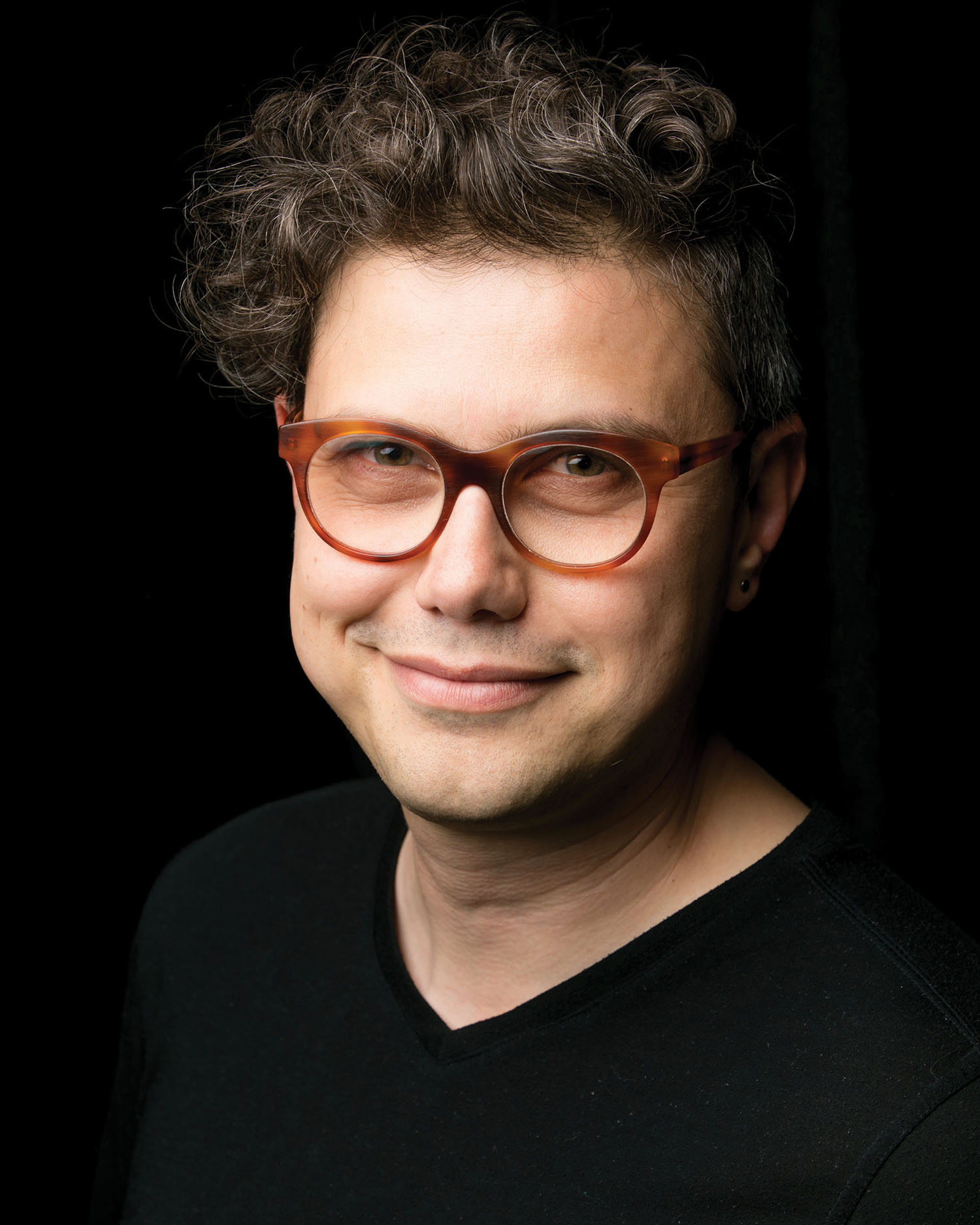
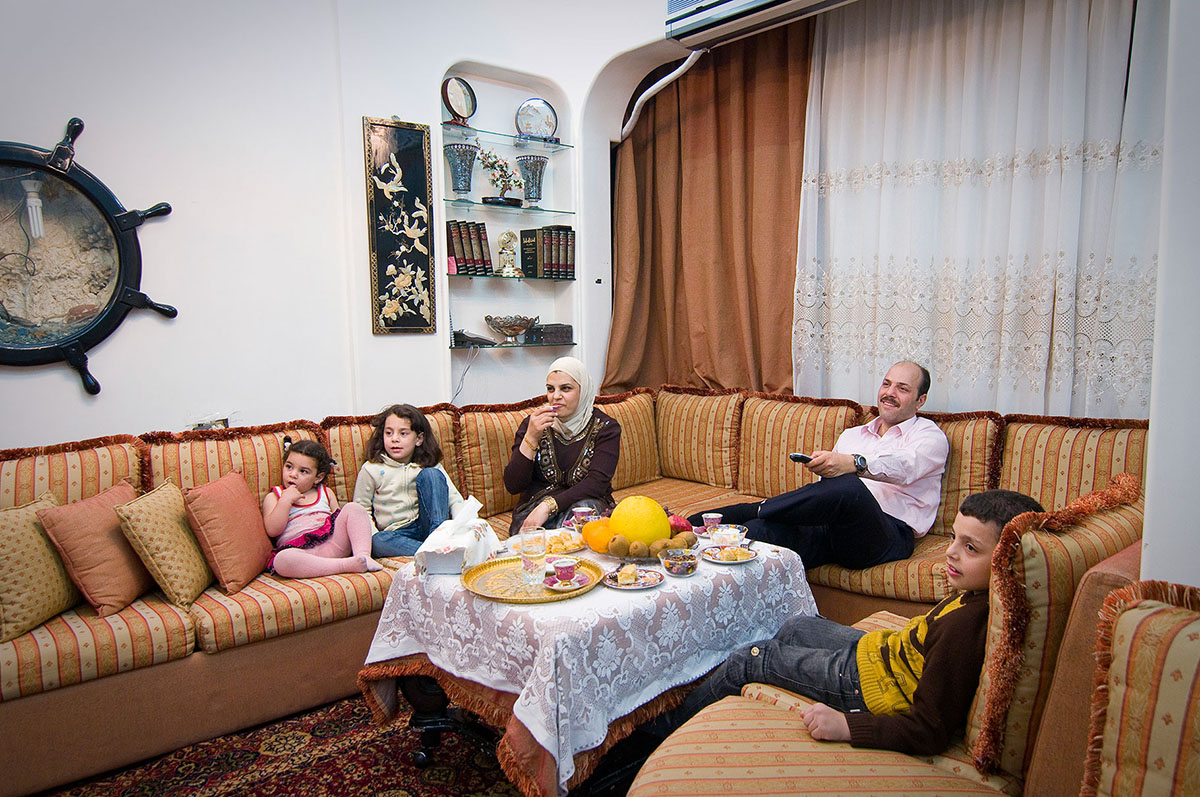
Since the 1960s, Syrian soap operas (known in Arabic as “mosalsalat“) have gained national and international recognition. Check out Claudia Wiens Art Photography site for photos from these acclaimed series.
They have become an enduring staple in the Arab world with their tales of a simpler Middle East. During the Muslim holy month of Ramadan, people across the Middle East have rushed to catch episodes of popular shows such as, “Bab el-Hara,” or “The Neighborhood’s Gate.” Click here to view an opening sequence for “Bab el-Hara.”
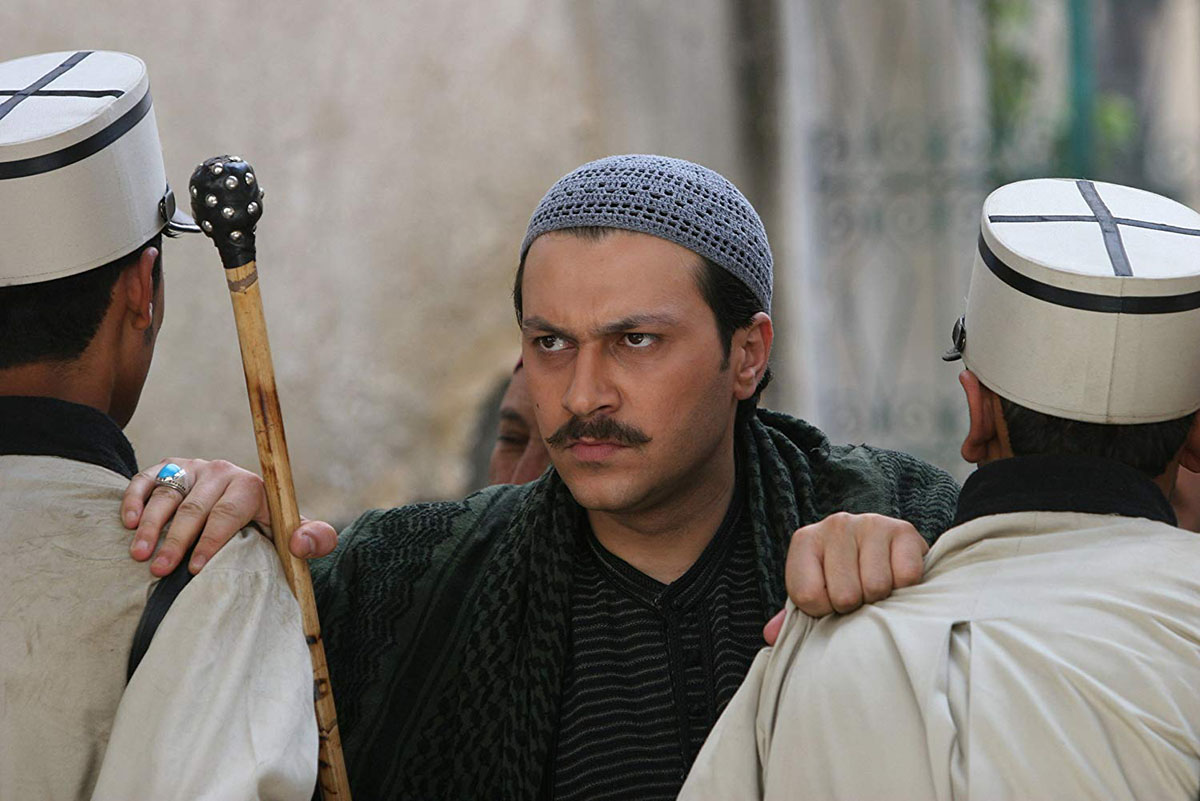
From 2000 to 2010, Syria experienced an outpouring of soap operas. Channels aired almost 40 shows, the quality of which far surpassed the productions of rival Egypt.
But after the start of the civil war in 2011, amid increased violence, poor access to historical sites, and the exodus of important figures in Syrian drama, the number of productions was cut almost in half.
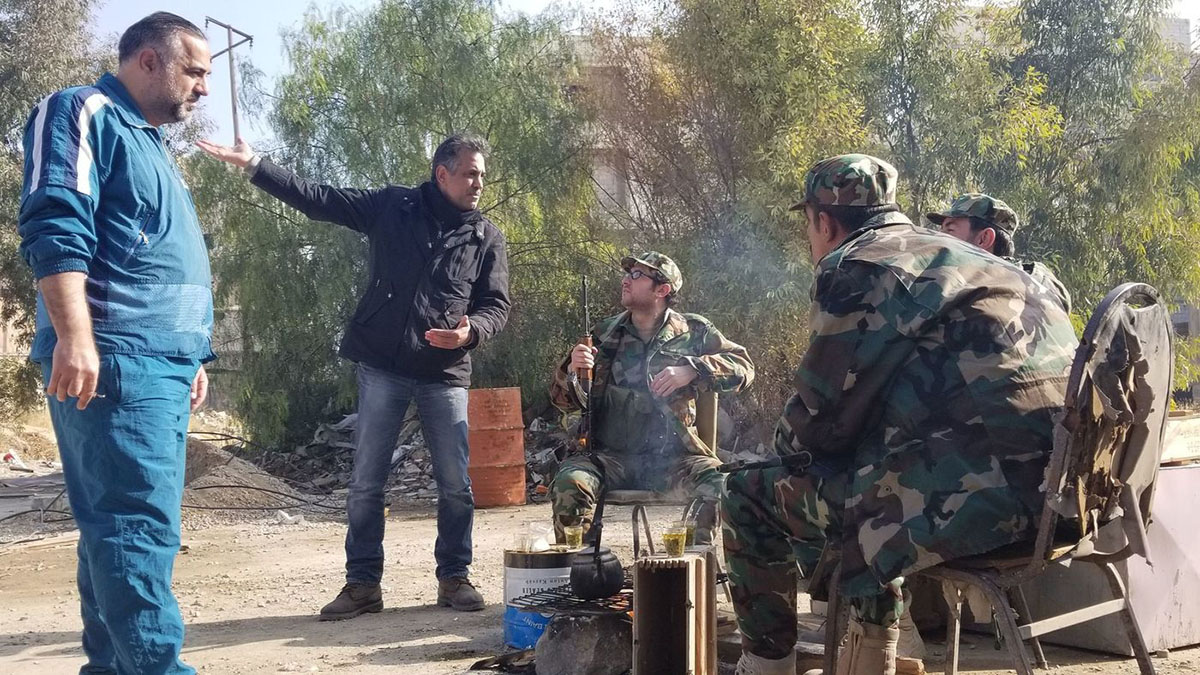
Celebrity actors and directors were soon embroiled in the same bitter clashes that divided the country, as gossip columns reported on who supported the government and who sided with the rebels. At least eight famous actors have been targeted and killed, while others were effectively blacklisted because of their political leanings.
Sources:
Buloh, Nadis. (2018, March) “In a new crop of television dramas, Syria confronts its civil war” Los Angeles Times
Joubin, Rebecca. (2018 Spring) “Syrian Drama and the Politics of Dignity” Middle East Research and Information Project
From Torange Yeghiazarian, Executive Artistic Director, Golden Thread Productions: SYRIA, An Everlasting Creative Expression
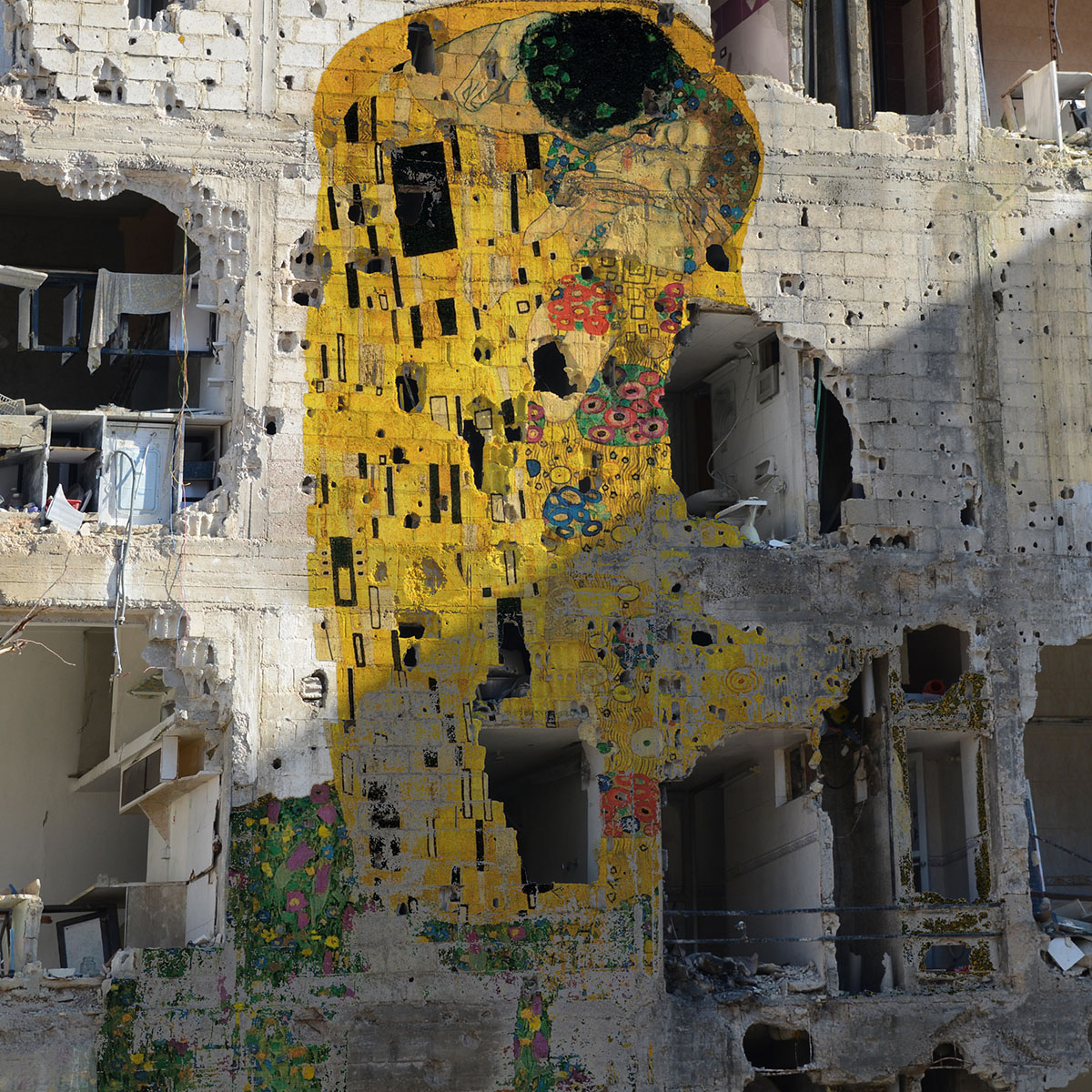
Artists, journalists, and teachers were at the forefront of anti-government demonstrations in Syria when it first began in 2011. But peaceful protests quickly escalated after the Assad regime’s violent crackdown, and armed opposition groups began fighting back. Within months, army defectors loosely organized the Free Syrian Army, and many civilian Syrians took up arms to join the opposition. By 2013, Syria was engulfed in an all-out civil war. The situation went from bad to worse when outside parties began launching air strikes in the fall of 2015. Today, the Assad regime has regained control over most of the rebel-held enclaves except northwestern Syria, controlled by Kurdish militia. An estimated 465,000 people have died in the fighting since it began in 2011, and about 12 million people—or half the country’s pre-war population—have been forced from their homes.
Before the war, Syria was considered one of the leading centers of art in the Middle East, both for its breathtakingly diverse and well-preserved ancient sites, and its thriving music scene and contemporary visual arts. With the start of the Arab Spring, art became a way for people to create a revolutionary identity for themselves, using paintings, street art, and film as media to express their opposition to the regime, and their hopes for a new future. Syrian soap operas, particularly television miniseries that air during Ramadan, offered not only entertainment and escape, but also sharp critiques of official political discourse. One of Syria’s leading stars, Mai Skaf, was arrested by security forces in 2014 for her role in anti-Assad regime activities. Before being forced to leave Syria, Skaf declared her opposition to the Assad regime and its crackdown on the peaceful movement. Later, the regime issued a decree to dismiss 101 radio and television workers on similar charges. Skaf passed away in Paris in July 2018. Years of civil war may have been expected to diminish Syria’s creative expression; instead, Syrians have continued to place value on the importance of artistic production, using it not only as a platform to expose the realities of their life under war but also as proof of their resilience.

